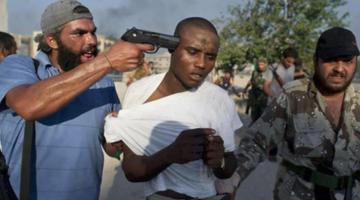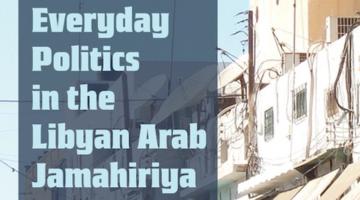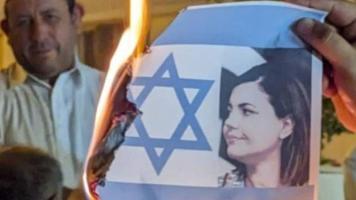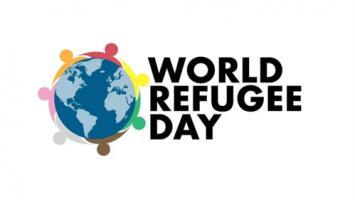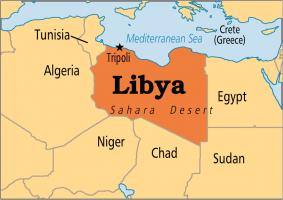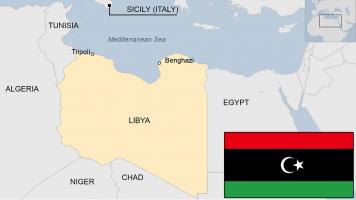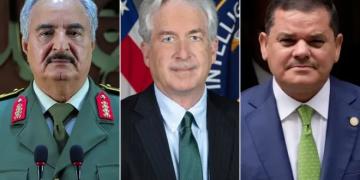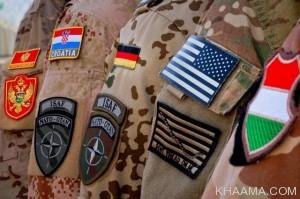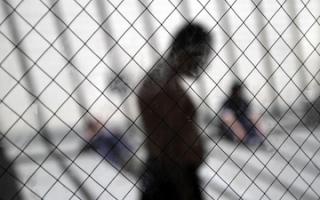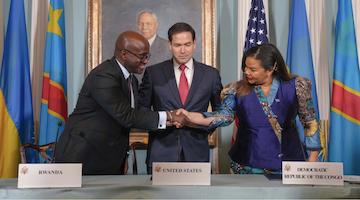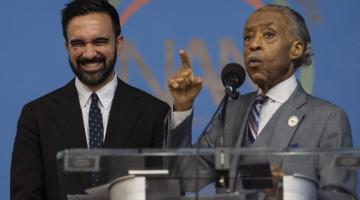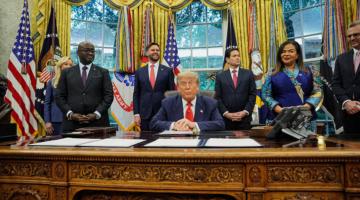Libyan crowd with cell phones capturie the lynching of a black African in Rebel-Held Libya
“The world’s most imperial-dependent, ill-disciplined and whining ‘liberation movement’ is still blaming black ‘mercenaries’ and soldiers from Chad for its failures in the field.” Chad, meanwhile, has officially asked the “international coalition” to protect its civilians from the rebels, who have executed “dozens” of Chadian migrant workers. In rebel-held Libya, black Africans and Gaddafi supporters are the people in need of protection.
“Dozens of Chadians have been ‘singled out’ and ‘executed,’ falsely accused of acting as mercenaries for Muammar Gaddafi’s regime, according to Chad.”
The African nation of Chad has called on Libya’s Euro-American “humanitarian” overseers to protect Chadian citizens from lynching at the hands of rebels backed by the West. The government in N’Djamena, which certainly has no interest in antagonizing the Euro-American juggernaut that has assumed a “responsibility to protect” whomever it designates as “civilians” in the territory of its northern neighbor, issued a formal request for “international coalition forces involved in Libya and international human rights organizations to stop these abuses against Chadians and other migrant Africa workers." Dozens of Chadians have been “singled out” and “executed,” falsely accused of acting as mercenaries for Muammar Gaddafi’s regime, according to Chad, 300,000 of whose citizens were among the 1.5 million black African migrant laborers in Libya at the time of the February revolt.
Numerous reports from migrant workers who escaped from rebel-held areas indicate hundreds of black Africans have been lynched, including black Libyan citizens. (See “Race and Arab Nationalism in Libya,” BAR, March 9.) A Turkish oil worker related an especially horrific account to NPR: “We left behind our friends from Chad. We left behind their bodies,” he said. “We had 70 or 80 people from Chad working for our company. They cut them dead with pruning shears and axes, attacking them, saying you're providing troops for Gadhafi. The Sudanese, the Chadians were massacred. We saw it ourselves.”
“Western media have lent sympathetic ears to rebel claims that assaults by Gaddafi’s black ‘mercenaries’ drove ‘the people’ to commit ‘excesses.’”
Although many western journalists have been all but embedded with the rebels for many weeks, until recently there has been precious little high profile corporate media reporting on the political complexion of Gaddafi’s armed opposition, atrocities against black Africans, or summary executions of prisoners, which are war crimes under international law. Western media have lent sympathetic ears to rebel claims that assaults by Gaddafi’s black “mercenaries” drove “the people” to commit “excesses.”
As usual, it is only after the U.S. government has embarked irrevocably on the warpath that corporate media reveal the flaws in the rationale. In the April 3 New York Times Sunday Magazine, reporter Robert F. Worth passes on the rebel’s version of one of their first confrontations with “mercenaries” in Benghazi:
“The next day, the protests resumed and grew more violent as the first groups of mercenaries appeared, in yellow construction hats, to fight the protesters. Some were Africans; some appeared to be foreign workers, including Bangladeshis and Chinese. Many were not mercenaries at all, but dark-skinned men from southern Libya or hapless African migrants in search of work. Some of the ones I talked to, in makeshift rebel prisons, said they had been tricked with promises of jobs and never paid at all.”
What is obvious from the account, is that the anti-Gaddafi crowd (mob) encountered polyglot groups of yellow-hatted foreign construction laborers (total foreign workers in Libya numbered over 3 million) in their march through Benghazi, and assaulted them, with black Africans receiving especially brutal attention.
“They wanted to kill the black soldier.”
The April 1 edition of Britain’s Globe and Mail reports on a “bitter struggle” among the rebels on “how to contain the anger unleashed after decades of oppression.” Translation: How to stop the summary executions of captured, or reputed, Gaddafi supporters – especially the black ones.
“Rebels have frequently treated dark-skinned prisoners more harshly than men of Arab ancestry,” Graeme Smith reported:
“That distinction was made brutally obvious to doctors at the intensive care unit of Al Bayda’s main hospital on Feb. 17 when they admitted two men – one black, the other with the local olive-skinned complexion – who stood accused of fighting the rebels. A crowd gathered outside the hospital, calling for blood. Some armed rebels pushed their way into the ward.
“’They had guns and knives,’ said Mahmoud Anass, 27, a resident on duty that night. ‘It was really scary. They wanted to kill the black soldier.’
“Doctors managed to hold off the enraged youths until a few hours after midnight, when the rebels dragged the two patients into the street.
“’An old man tried to stop them,’ said Faraj Khalifa, a doctor. ‘He said our religion does not permit the killing of unarmed men. But the youths were very, very angry. They hanged the black man in front of the hospital.’
“The patient with lighter skin was beaten, shot, and returned to the emergency room, Dr. Khalifa said.”
“Racism against black Africans, including black Libyans, appears endemic in eastern Libya.”
Here we have both a war crime and a racial hate crime – a microcosm of the mob rule that has swept regions of rebel control. As the Globe and Mail wrote: “Paranoia about mercenaries remains strong among the rebels, despite assurances from human-rights groups that most of the fighters among the pro-Gadhafi forces are Libyan citizens.”
More accurately, racism against black Africans, including black Libyans, appears endemic in eastern Libya.
The same article shows convincingly that rebels executed more than a dozen captured government soldiers at the town of Darna early in the rebellion, then buried their bodies at a crossroads next to a wall on which it is written, “killed by Gadhafi.”
It is likely that scores of soldiers whose bodies were found in a Benghazi barracks, burned beyond recognition, met the same fate. Rebels initially claimed the men were killed by Gaddafi officers for refusing to fight their own people.
The Super-Powered ‘Revolution’
The world’s most imperial-dependent, ill-disciplined and whining “liberation movement” is still blaming black “mercenaries” and soldiers from Chad for its failures in the field – that is, when they aren’t crying about not having a 24/7 umbrella of full-spectrum American dominance of the skies. On March 31, the Interim Transitional National Council (ITNC) – half of whose members remain “secret” and many of whom may now be mere fronts – claimed that a unit of 3,600 Chadian troops have killed and wounded thousands of rebels since hostilities began. This phantom Chadian army, fighting more than a thousand miles from its impoverished homeland and supply lines, was supposedly to blame for the rebels’ military setbacks around the city of Brega, according to ITNC spokesman Ahmed Bani – evidence that “paranoia” about black enemies of the Libyan “revolution” is not limited to the mob.
The rebels are in fact stymied by the Americans, who show their Libyan dependents who is boss by periodically withdrawing the protection of U.S. airborne kill-at-will systems. President Obama signaled loud and clear that the council in Benghazi will not rule the country, when he intoned, from Chile, that “forty years of tyranny has left Libya fractured and without strong civil institutions. The transition to a legitimate government that is responsive to the Libyan people will be a difficult task.” That’s U.S. Imperial-Speak for: We will run the country for you, until you are ready to stand on your own, traumatized feet. Like Haiti.
“The Americans show their Libyan dependents who is boss by periodically withdrawing the protection of U.S. airborne kill-at-will systems.”
The U.S. is attempting to regain its regional balance as the winds of the Reawakening whip the Arab world. Washington has seized the opportunity in Libya to appear as an uber-protector of emerging forces for change, while positioning itself to quash any substantive threat to imperial interests. As added bonuses, the largest oil reserves in Africa are to be pillaged by multinationals, and the U.S. military can envision a huge new arena for AFRICOM, much larger than the U.S. facility in tiny Djibouti, on eastern coast.
The militant Islamist presence among the rebels will be worked to U.S. advantage, an embedded rationale to bring Libya wholly and permanently into the War on Terror theater of operations. Should an “insurgency” erupt with the fall of Gaddafi, all the better for a U.S. war machine that runs on bogeymen.
But, don’t be overly shocked and awed by the ferocity of the Euro-American counter-offensive. Arab nationalism, in its many manifestations, represents an existential threat to imperial survival. After generations of suppression of the Left in Arab lands, nationalism (and anti-imperialism) now often finds its expression from the Right, in religious form and language. Nevertheless, all nationalisms among subject peoples are ultimately antithetical to imperial rule.
Racism is often a strong component of particular nationalisms. (White American nationalism is a dramatic example.) Arab Muslim identity in the North African Maghreb, for some, is defined in opposition to darker, “Africans,” whether they are Muslim or not. Without doubt, this strain of racism is a huge barrier to South-North Pan-Africanism, and useful to the Euro-Americans. But, even nationalists who are afflicted with racism will fight to control their own land and resources – which is U.S. imperialism’s fundamental – and insoluble -- problem.
BAR executive editor Glen Ford can be contacted at [email protected].

